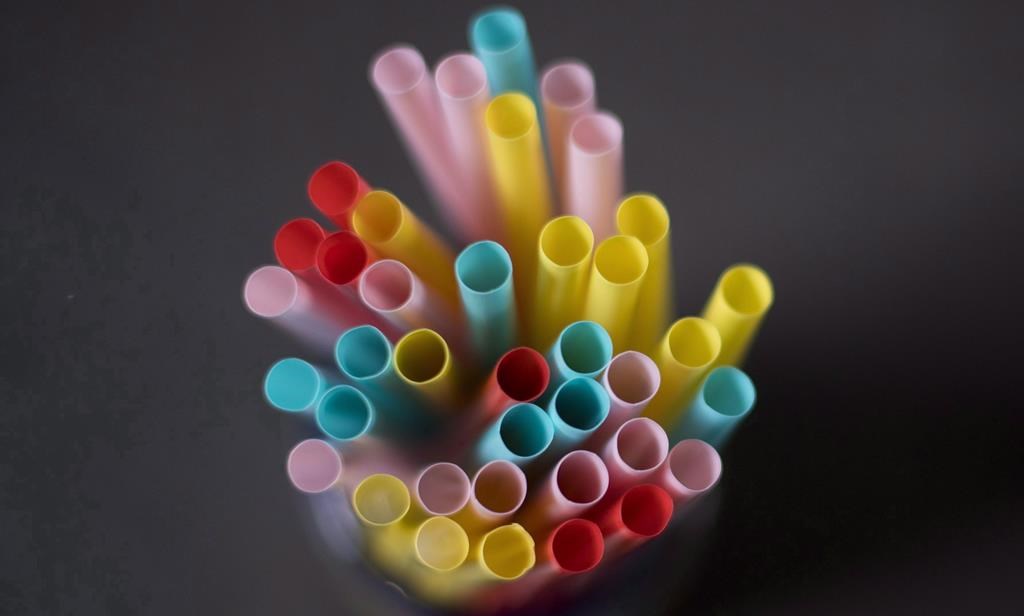While environmentalists suggest a proposed ban on single-use plastics doesn’t go far enough, a disability studies professor in London is calling for nuance and inclusion in the national conversation.

“Not everyone is able to lift a cup to their mouth, or a bottle to their mouth. They require somebody else to hold it for them, for instance. And it’s actually very difficult to pour a liquid into someone’s mouth — it’s a lot easier to use a straw,” said Jeff Preston, professor of disability studies at King’s University College, who also noted that reusable options aren’t perfect.
“For those who are using straws who may have compromised immune systems, those reusable straws could actually be very difficult to properly sterilize. Metal and glass straws can get really, really hot if you’re drinking a hot drink, like coffee. For those who have tremors or spasms, for instance, those harder straws could also — you can get poked in the mouth, poked in the gum, and that doesn’t even get into the phase around paper straws or pasta straws, which can also be choking risks.”
Even outside of an outright ban, Preston is concerned about a lack of demand for plastic straws prompting businesses to simply stop offering them.
“The restaurant might not actually have the tool that I need to be able to drink there, so maybe it’s just easier to stay home,” he said.
“The more often that we ask disabled people to simply stay home, not only is it the lack of inclusion that we’re getting as a community, but it is once again saying that disabled people are simply not welcomed to be in our community.”
Heenal Rajani of Reimagine Co. on King Street is also expressing concern about the proposed ban and is calling for a broader conversation about plastics in Canada.
“There is, you know, a concern that maybe people are jumping on the bandwagon, and how sincere and how committed they are to it may be a different matter,” he said.
WATCH: The growing international war against single-use plastics

Rajani also noted that while single-use plastic has become a hot button issue worldwide, it’s just a portion of the problem.
“Over 90 per cent of plastic does not get recycled, even though much of it can be. That’s the reality. So people think that getting rid of single-use plastics is the answer, but actually, there’s a lot of recyclable plastics that doesn’t get recycled. There’s plastic that we use at different stages of consumption. If you walk into a grocery store and see all the things in plastic containers, no one is talking about banning those plastic containers, right? I think they should be,” he said.
“The reality is that plastic production is increasing year on year on year — there’s more and more plastics, including in Canada. Plastic production is one of the fastest-growing industries in Canada.”
Prime Minister Justin Trudeau announced Monday that the government is looking at different options to limit the use of single-use plastics and make plastic producers responsible for the collection and recycling of their products under new regulations.
WATCH: Questions about federal ban on single-use plastics

The current plan is to study how other jurisdictions like the European Union bar single-use plastics and put together a list that will be covered under the ban over the coming months and year, Trudeau said.
But no actual ban is likely until roughly 2021.
Trudeau said the timeline will be based around consultations and discussions with scientists about which plastics should be targeted, what alternative options are available for businesses, and how unintended costs to small businesses could be limited.
— with files from Global News National Online Journalist Amanda Connolly
- Green Party deputy leader given jail sentence for Fairy Creek old growth protests
- More financial institutes are offering crypto-services, survey shows
- Singh mulls TikTok return as U.S. nears potential ban over security fears
- EV sales in Canada rose in recent years despite higher interest rates. Why?








Comments